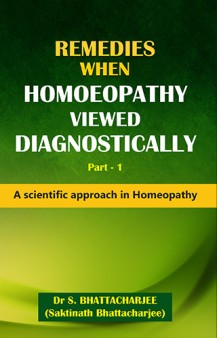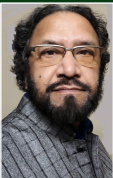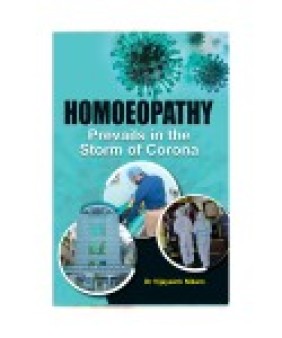Remedies When Homoeopathy Viewed Diagnostically (a scientific approach in Homoeopathy)
| Author: |
Saktinath Bhattacharjee |
| ISBN: | 9788131919590 |
| Imprint: | B.Jain Regular |
260
Paperback
English
About the book –
Conventionally, Homoeopathy is not a system of treatment that can be viewed diagnostically. It should be symptomatic when it is Homoeopathy. But nowadays a disease can be recognised easily by some diagnostic tests, and looking ...Read More
About the book –
Conventionally, Homoeopathy is not a system of treatment
that can be viewed diagnostically. It should be symptomatic when it is
Homoeopathy. But nowadays a disease can be recognised easily by some diagnostic
tests, and looking at the disease through symptoms becomes secondary. The aim
behind publishing this book is to find out a reasoning based approach in
Homoeopathy to the disease-drug relation, so that any physician may find out
the remedy of a disease on his own, if the disease is diagnosed and the reasoning
for selecting the remedy for it is correct, without going through the
compilation of symptoms. In this book, the author has tried to find out ways
and wanted to show that how the approach of the treatment will be ‘diagnostic’
in nature. This book is a merger of two parts of the well-known book named,
‘Homoeopathy viewed Diagnostically’ by the author. In this edition it is
revised again, some topics have been added and everything is made available in
a single attractive folder. The contents of this book are a research work by
the author who has been practising Homoeopathy for more than 40 years. His
academic study in Homoeopathy had been preceded by his another academic study
in ‘Applied Mathematics’ in postgraduation under C.U., which certainly influenced
him to look Homoeopathy from a different angle which is ‘diagnostic and
scientific’ in nature.
How the author has perceived
Homoeopathy?
To him, it is not the matter which remedy is mentioned for a
disease in the materia medica but he used to question, whether ‘it’ or ‘which
one’ should be the remedy, diagnostically? Because, a remedy must have a
diagnostically proven ‘disease-drug relationship’ for its effectiveness and
curability only then the method will be considered as ‘scientific’. The way he
established the ‘disease-drug relationship’ in this book bears the essence of
modern system of treatment and Homoeopathy can never be tagged as
‘unscientific’ anymore.
He always questioned: Why one of the main symptoms of
Lachesis is ‘cannot bear anything tight anywhere’? Or, why does Pulsatilla show
‘no two stools alike’? All such unanswered questions, generally ignored in
graduation level, are explained here diagnostically. He observed, the
pharmacodynamics of a remedy bear the indications of a particular set of
symptoms to be exposed in a diseased person, because, a remedy can never leave
its fundamental properties, be it physical or chemical or relating to
toxicology, pharmacology etc. So, the process of selection of a remedy should
have a pathogenic conformity to become a scientific method. And thus, a
diagnostically established disease-drug relationship is very important which
will have a distinct impact towards curing a disease.
The book is an exceptional work of the author. Nothing else,
but a book of such kind of innovative works can actually determine the genre of
a person. And the author likes to be known only through his works and
acceptance of it by the readers, specially, the next-gen-Homoeopaths.
We hope that this book will be helpful for both the students
and the practitioners of Homoeopathy during the selection of the remedy.
| Pages | 260 |
|---|---|
| Format | Paperback |
| Imprint | B.Jain Regular |
| Language | English |
Add a Review
Your email address will not be published. Required fields are marked *
Saktinath Bhattacharjee
The Author is a renowned Homoeopath and a well known personality in the country and abroad for his works relating to “diagnostic approach” in Homoeopathy. In his early life, while working in the remote village as an officer of a Nationalized Bank, he experienced the sufferings of the poor people in having medical facilities and tried to help them with his newly (at that time) developed ‘diagnostic approach in Homoeopathy’. Observing the overwhelming response of the patients on... Read More




